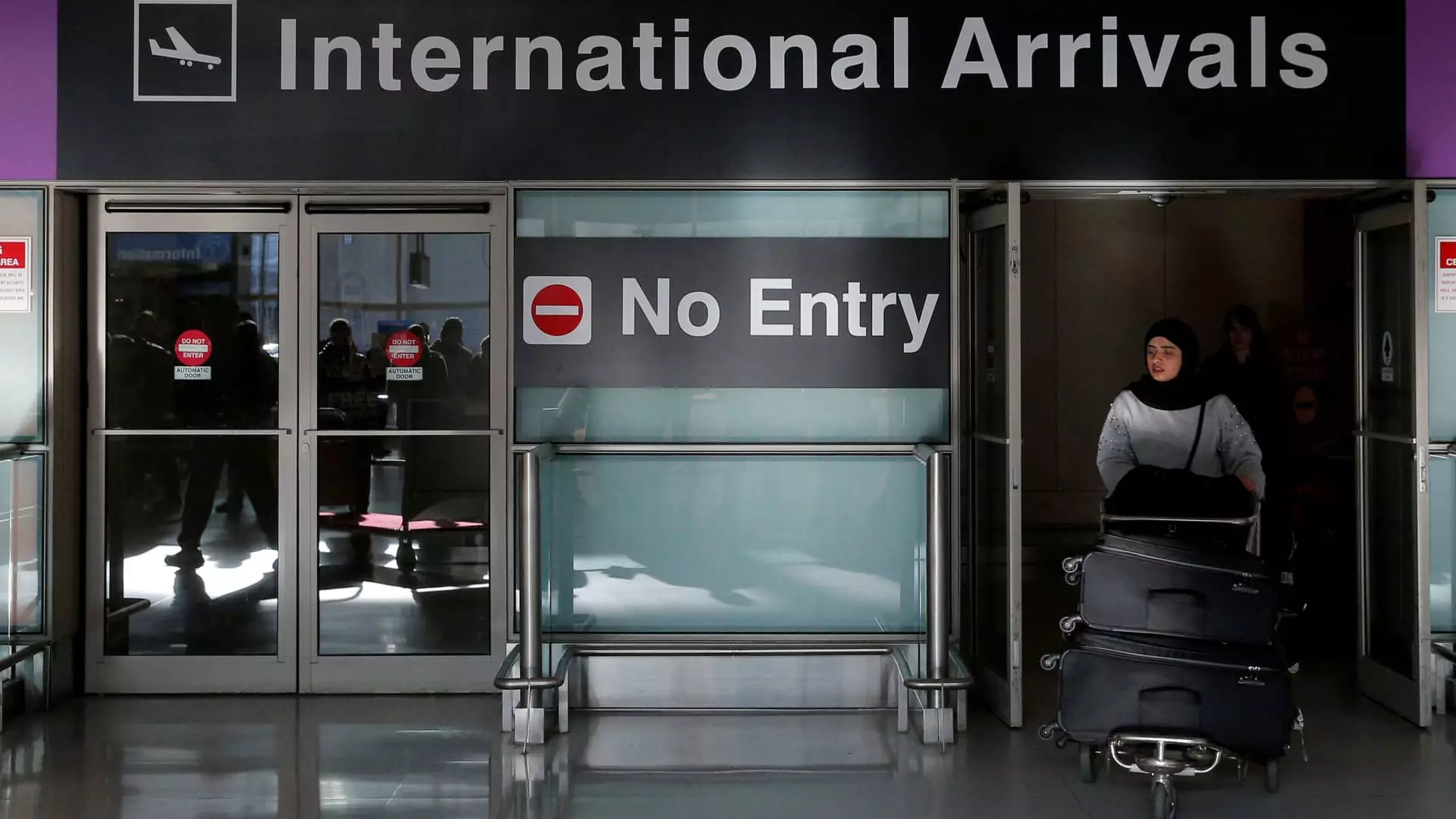In a deeply troubling episode of U.S. governance, President Donald Trump recently implemented a travel ban that primarily targets citizens from 12 countries in Africa and the Middle East. With a sweeping stroke of a pen, the president has crystallized his vision of security—a vision predicated on exclusion rather than the inclusive values that have long been foundational to American identity. The countries affected include Afghanistan, Myanmar, Chad, and Somalia, among others—nations already grappling with conflict, instability, and humanitarian crises. This policy goes beyond mere restrictions; it echoes a disconcerting narrative that frames migrants as inherently suspect and dangerous.
The implications of this ban are significant. In framing the citizens of these nations as national security threats, the administration strips away the complexities of individual lives. Families, like that of Haitian-American Elvanise Louis-Juste, who merely wish to reunite with loved ones or escape violence, find their aspirations stifled. Louis-Juste’s account provides an unsettling glimpse into the human cost of this policy, illustrating how such measures can deepen societal fractures and perpetuate narratives of fear.
Legitimizing Fear as a Policy Tool
Trump’s assertion that these nationalities represent “terrorism-related” and “public-safety” risks is a stark reminder of how fear can be weaponized for political gain. The president’s rhetoric suggests a calculated strategy to sidestep the legal ramifications that plagued past iterations of restrictive immigration policies. By focusing on the visa application process, the administration cleverly positions itself as a guardian of national security, rather than a perpetrator of division.
However, it is essential to acknowledge the problematic nature of such justifications. The insinuation that individuals from these countries are categorically dangerous glosses over an essential truth: the vast majority are seeking refuge from the very calamities that led them to flee. They are not merely numbers on a list; they are individuals, families, and communities striving for a better future. By reducing them to a statistic in a Homeland Security report, the administration perpetuates a harmful stereotype that could linger in the public consciousness far beyond the ban itself.
The Fallout for Civil Society
The ramifications of this policy extend beyond individual lives; they have broader implications for civil society and humanitarian efforts within the U.S. Organizations dedicated to refugee assistance and resettlement have condemned the ban as an unjust, politically motivated maneuver. Statements from groups like Oxfam America articulate a counter-narrative of empathy and solidarity, charging that the ban fosters division and vilifies those pursuing lives free from violence and oppression.
More than just a travel restriction, this policy risks igniting a cultural rift that damages the social fabric of the U.S. By sidelining entire communities based on nationality, the government signals that certain lives are worth less than others. This is not merely an argument about migration; it is about the values we ascribe to humanity itself. In a country that has historically prided itself on being a melting pot of diverse cultures and backgrounds, such a hardline stance undermines centuries of progress toward equality and justice.
International Repercussions and the Bigger Picture
Countries like Venezuela, targeted for heightened scrutiny, have responded vehemently against this stigmatization. The government’s condemnation alludes to a more insidious trend where national identity is weaponized as a political tool. As nations grapple with their own political challenges, this travel ban could exacerbate tensions and lead to retaliatory measures that may further isolate the U.S. on the global stage.
Such outward criticism raises an important question: how will the U.S. position itself in the international community if it adopts a policy framework that appears xenophobic and exclusionary? In a world that increasingly requires collaboration to address global challenges—such as climate change, health crises, and geopolitical instability—this travel ban underscores a retreat from global citizenship and cooperation.
While President Trump’s new travel ban may be cloaked in the rhetoric of safety, it reveals the darker undercurrents of prejudice and discrimination that have unfortunately found their way into the heart of American policy. Through this lens, we must critically assess the implications—not just for those directly affected, but for the values that underpin the very fabric of our society.


Leave a Reply